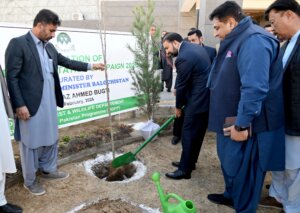Sadia Sadiq Umrani :
Women in Balochistan, Pakistan’s resource-rich province have always played vital roles in their families and communities. Yet, despite their resilience, they continue to face significant barriers to education, employment, healthcare, and leadership opportunities. While progress toward women empowerment in Balochistan has been slow, there is immense potential for transformation — especially when we learn from the success stories of our neighbouring countries.
Learning from China’s Model of Women Empowerment
A recent international seminar in China brought together representatives from across Balochistan to explore effective models for women’s capacity building. The event showcased successful initiatives in China, where rural women have been empowered through vocational training, entrepreneurship development, access to healthcare, and quality education.
One powerful example was observed at the Yiwu Trade Centre, a thriving commercial hub managed significantly by women. Their visible leadership, financial independence, and entrepreneurial skills showed how empowering women in trade and business can accelerate economic growth. For Balochistan’s women, such examples offer hope — and a roadmap — for social and economic progress.
The Challenges in Balochistan
Despite the growing awareness, women in Balochistan continue to struggle with multiple challenges. In rural areas, many girls are still deprived of quality education; healthcare facilities remain inadequate; and deep-rooted social norms restrict women’s participation in public and economic life.
Yet, these challenges are not insurmountable. By adopting proven strategies from other regions and tailoring them to Balochistan’s cultural and economic realities, the province can pave the way for inclusive development.
Local Initiatives and the Road Ahead
Several local organizations and government programs in Balochistan have already started working toward women’s empowerment — from community education initiatives and vocational training centres to healthcare and entrepreneurship programs. While these initiatives are commendable, they require stronger investment, effective implementation, and inter-agency coordination to make a lasting impact.
The key lies in combining global best practices with local knowledge. Through targeted policies, better infrastructure, gender-inclusive governance, and digital literacy, Balochistan can unlock the full potential of its women. When women progress, entire families and communities move forward — leading to economic growth, social stability, and sustainable development.
A Call to Action
The seminar in China served as a reminder that women’s empowerment is not just a social goal — it’s an economic necessity. By investing in education, health, and entrepreneurship opportunities for women in Balochistan, the province can join its neighbours in creating a more equitable, prosperous, and progressive future.
Now is the time for government, civil society, and private sector stakeholders to work together and translate these lessons into real action. The women of Balochistan have already proven their strength, resilience, and determination — all they need are opportunities, support, and a system that believes in their potential.
If our neighbours can empower their women to lead, innovate, and thrive — why can’t Balochistan, a province of Pakistan cannot ?






